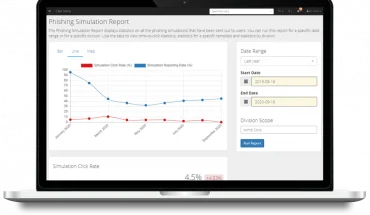Cyber security is more important today than physical security, so if you have a lock on your door or clothes on your back, you may want to lock up your smartphone and wrap your digital devices in a coat of armour.
That’s how more and more companies see it: the workplace is today characterized by digital activities of employees who have access to all kinds of sensitive proprietary information and legally-protected customer data.

New or used, smartphones and digital devices both carry, and provide access to, valuable data that should be protected. e-Cycle press image.
So-called BYOD trends, letting employees bring their own device to work, are surely opening up both intended and unintended access. Whether from a nefarious outsider, a malevolent insider or even a well-intentioned internal whistle-blower, threats to valuable personal and corporate assets are increasing exponentially.
In fact, investigations into digital threats, IP risks and cyber crime in the workplace alone are up 40 per cent in the past few years. Data protection and digital investigation is an industry unto itself now, and of course, many of the companies that provide the vulnerable services are now offering solutions to protect them.
So Vancouver-based mobile, Internet and telecom services provider Telus has bought a Toronto-based digital forensics company to help beef up its internal capabilities and service offerings.
The company Telus bought, Digital Wyzdom Forensics, provides network security, mobile threat, intellectual property and fraud advisory services to public and private sector organizations across Canada.
Telus already operates its own Security Solutions division, with some 250 employees and computer forensics staff in every major Canadian city. The company also operates its own Security Labs, with some 30 researchers on staff.
But now, it’s bringing on-board the Digital Wyzdom staff, which includes ex-RCMP and ex-police investigators whose law enforcement, legal system and digital investigation backgrounds have made them one of the more respected international forensics firms.
The deal comes following a multi-year relationship between the two firms; financial terms were not disclosed.
As president of Digital Wyzdom, Daniel Tobok noted that many of his clients are Bay Street law firms, which in turn are handling IT related investigations on behalf of their clients. He described typical scenarios as including investigation and analysis into cause for a company losing a major contract to a competitor, or being threatened by personally addressed e-mails, sent to senior corporate executives with malicious embedded links that seek a digital doorway into valuable corporate data repositories.
As the new Telus director of Security Solutions, Tobok will report to Yogen Appalraju, the division’s vice-president. The unit offers consulting service, network analytics and security solutions to its customers.
“Security breaches in the marketplace are on the rise and the demand for forensics services is expected to grow for the foreseeable future,” Appalraju said.
“The digital forensics industry is growing rapidly as a result of the increasing digitization of all aspects of business, government, and personal records,’” Tobok added. “As part of TELUS, we can offer customers everything from incident response, to digital forensic investigations and analysis, to proactive network security analysis to safeguard businesses from intruders and cyber-crooks.”
Such safeguards are of necessity often platform specific; one problem that Digital Wyzdom has been specifically addressing is the threat to Apple devices.
The operating system they run on is seen as “notoriously closed”, Digital Wyzdom says, and so getting data off an iPhone is a challenge because even turning the phone on can alter critical data needed to perform forensic analysis.
In response, the company opened up a focused Apple Forensics Practice, headed up by Maurice Ragogna. Ragogna has 37 years of experience with the Toronto Police Service, 10 years of which was in the Intelligence Division – Technological Crime Unit. He founded the High Tech Crime Investigative Association – Ontario Chapter (HTCIA) in 1998 and is its founding president. He served as the Chapter President for the fourth time in 2011.
“When we’re doing digital forensics on Apple products, the things we’re looking for are not in the same place as in Windows and they are in different formats. Apple has a different operating system and a different filing system,” Ragogna explained.
He added that a number of manufacturers now make forensic tools for Apple’s iOS machines including Encase, and Access Data, but the companies that are totally dedicated to Apple’s suite of products are BlackBag Technologies, Subrosasoft MacForensicLab, and Katana Forensics–Lantern2.
-30-
submitted by Lee Rickwood




